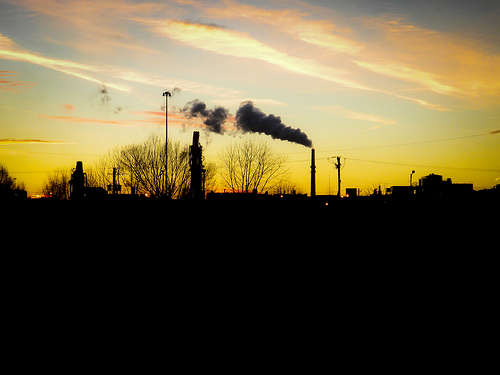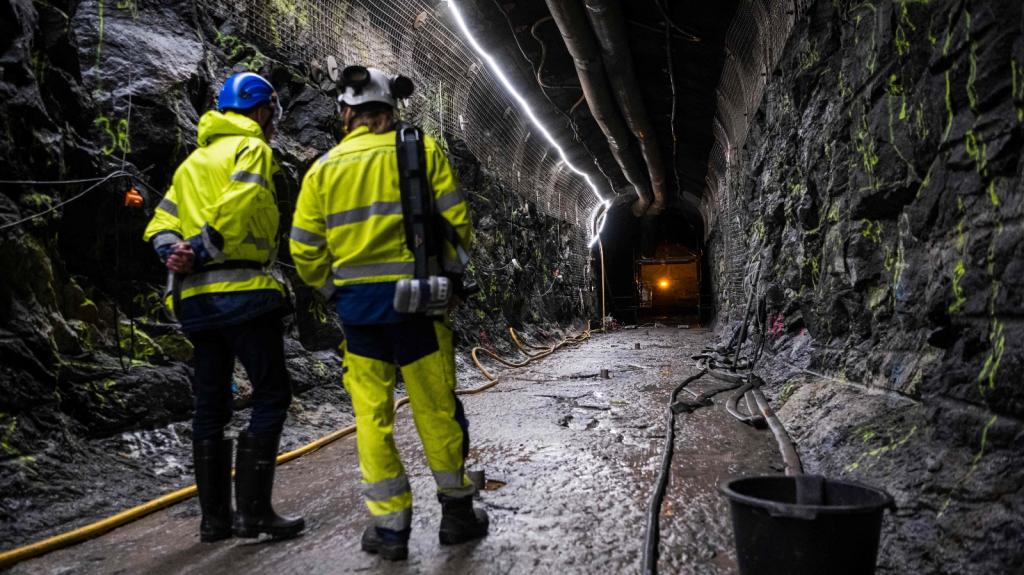
Sunset at the Fisk coal plant in Chicago. (Photo by vxla.)
Two major coal plants in Chicago ceased operation this week.
From the Chicago Tribune:
The Fisk power plant, in service since 1903, burned its final batch of coal Thursday while its sister plant Crawford shut down by Wednesday, ending Chicago’s run as the only major U.S. city with two coal plants operating in its borders.
Their closings, confirmed by owner Midwest Generation, eliminate Chicago’s two biggest industrial sources of carbon dioxide emissions, which contribute to global warming. At their peak the plants supplied power to roughly 1 million homes.
Both plants went into operation before the Clean Air Act (Fisk in 1968), allowing them to take advantage of a clause that grandfathered in existing plants and postponed pollution upgrades for decades. Here’s Businessweek from last year:
Lawmakers gave Fisk, Crawford, and their ilk a Clean Air Act pass based on the expectation that the old plants would soon close anyway because of decrepitude and inefficiency. The act requires that if such plants are modernized, their owners have to bring them up to code. Congress didn’t anticipate that some power companies would forgo modernization. “A lot of utilities have used chewing gum, duct tape, and rubber bands to keep the old plants running, while arguing in court that the changes are merely ‘routine maintenance,'” says Henry Henderson, Midwest program director of the Natural Resources Defense Council.
When the upgrades became unavoidable, Midwest Generation chose closure. The company announced earlier this month that it would likely file for bankruptcy.
Chicago residents won’t see even a flicker in electrical service. The impact will mostly be felt by workers, though even that is limited.
In total, Midwest Generation said 200 layoffs and retirements are expected across its fleet of Illinois plants. At Fisk and Crawford, 40 people are retiring with severance packages negotiated by the union, said company spokeswoman Susan Olavarria. In addition, she said 15 people are being laid off and 95 others have landed positions at other company plants.
Shifts in economic sectors are necessarily and unfortunately disruptive.
But the closure of Fisk also means that 15 fewer area residents will die prematurely each year. That disruption is worth it.



